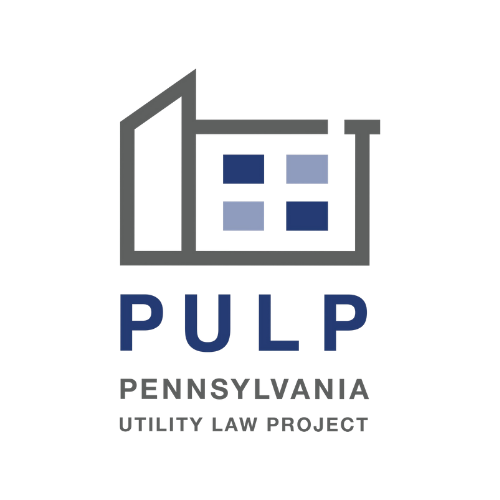Other Resources
-
The PA Public Utility Commission is the administrative body responsible for regulating utility matters in Pennsylvania. You can make a complaint about a utility problem directly on their website, as well as research consumer information and low income energy assistance programs.
-
The Pennsylvania Office of the Consumer Advocate was established by the General Assembly to represent the consumers of Pennsylvania in matters involving public utility service.
-
PULP serves the entire state of Pennsylvania - except for Philadelphia. If you are a resident of Philadelphia, Community Legal Services’ utilities legal staff may be able to provide you with legal assistance.
-
The Pennsylvania Legal Aid Network is a statewide consortium of independent legal aid programs that provides civil legal assistance to low income individuals and families. You can find your local program here.
-
PALawHelp.org is a project of the Pennsylvania Legal Aid Network and the Legal Services Corporation. It is produced in cooperation with Pro Bono Net and legal aid organizations, bar associations, community organizations and government agencies throughout Pennsylvania and the United States.
-
Regional Housing Legal Services (RHLS) is a nonprofit law firm with unique expertise in affordable, sustainable housing and its related components — community and economic development, utility matters and preservation of home ownership. RHLS provides innovative project and policy solutions that help create sustainable communities offering decent, safe and affordable housing for lower income Pennsylvanians. PULP is a project of RHLS.
-
Founded in 1976, PCADV and confidential direct services to nearly 90,000 victims and survivors of domestic violence and their children in all 67 counties of the Commonwealth. Together, local programs and the statewide Coalition work in collaboration to deliver a continuum of services, support, and systems to help victims and survivors find safety, obtain justice, and build lives free of abuse.
-
The Low Income Home Energy Assistance Program (LIHEAP) helps families living on low incomes pay their heating bills in the form of a cash grant. Households in immediate danger of being without heat can also qualify for crisis grants. The cash grant is a one-time payment sent directly to the utility company/fuel provider to be credited on your bill. These grants range from $300 to $1,000 based on household size, income, and fuel type. Remember: This is a grant and does not have to be repaid.
-
In Pennsylvania, the Department of Community and Economic Development (DCED) administers the statewide Weatherization Assistance Program (WAP) which provides weatherization and energy conservation services at no cost to low income households.
-
-
Dollar Energy Fund administrates utility assistance programs to many low income households.
